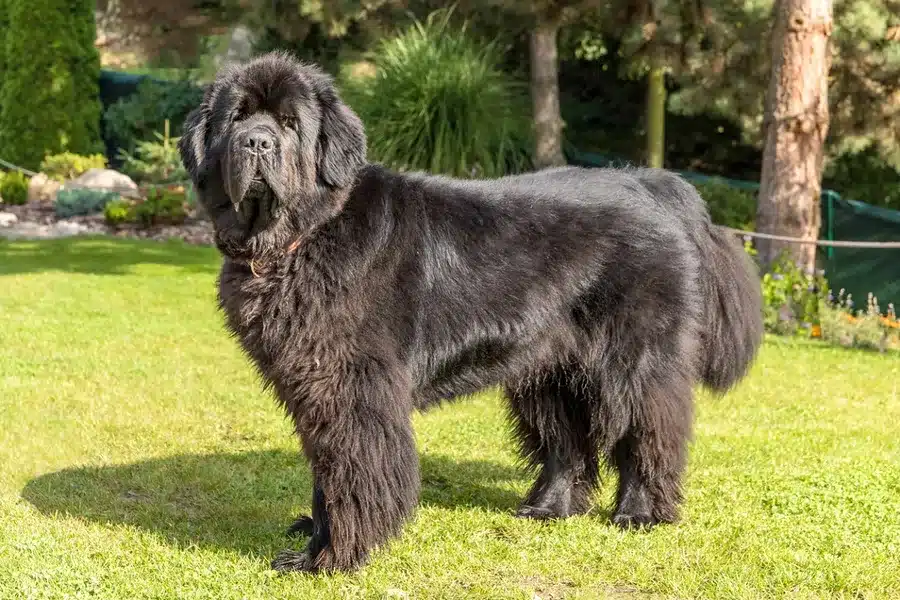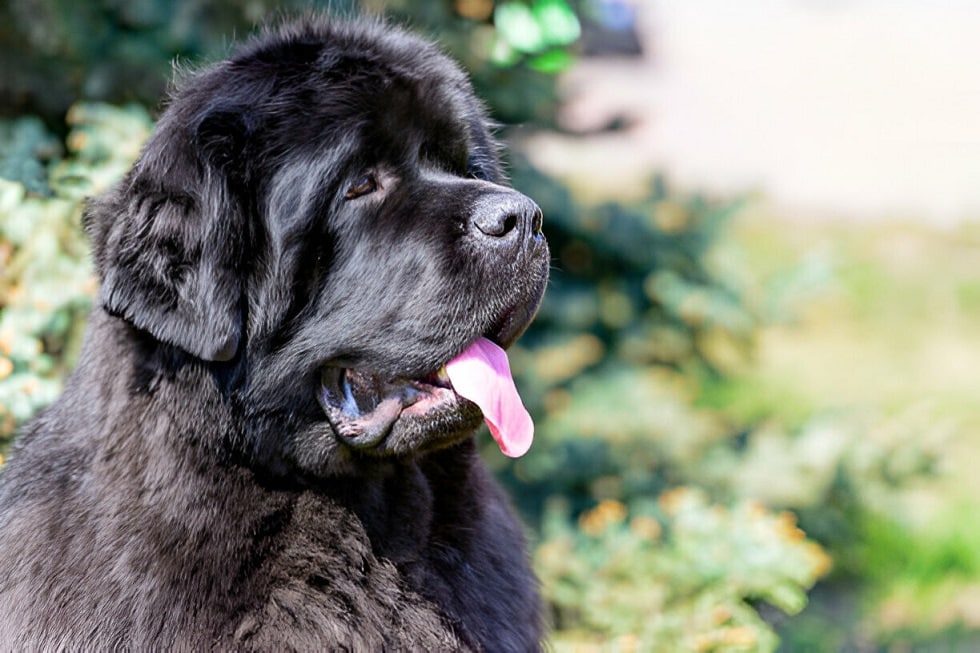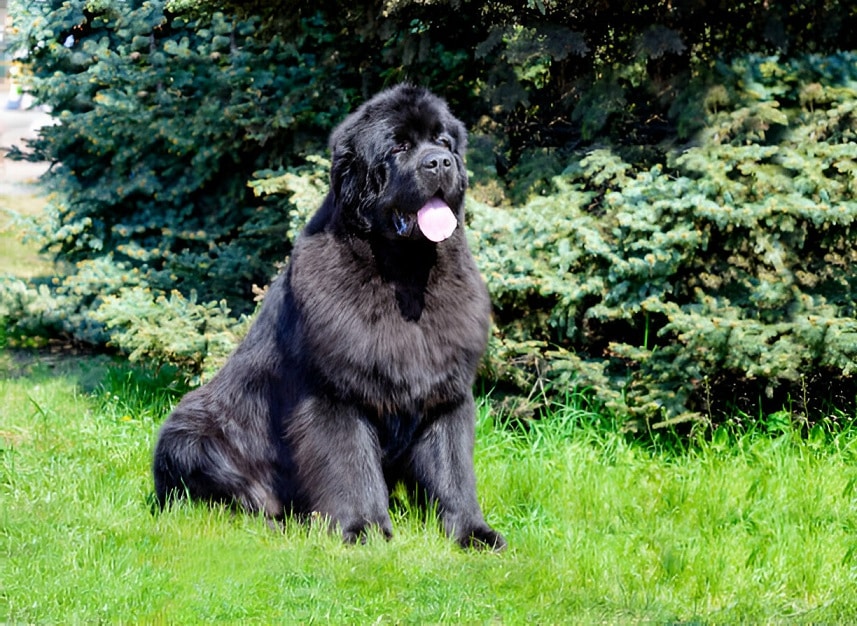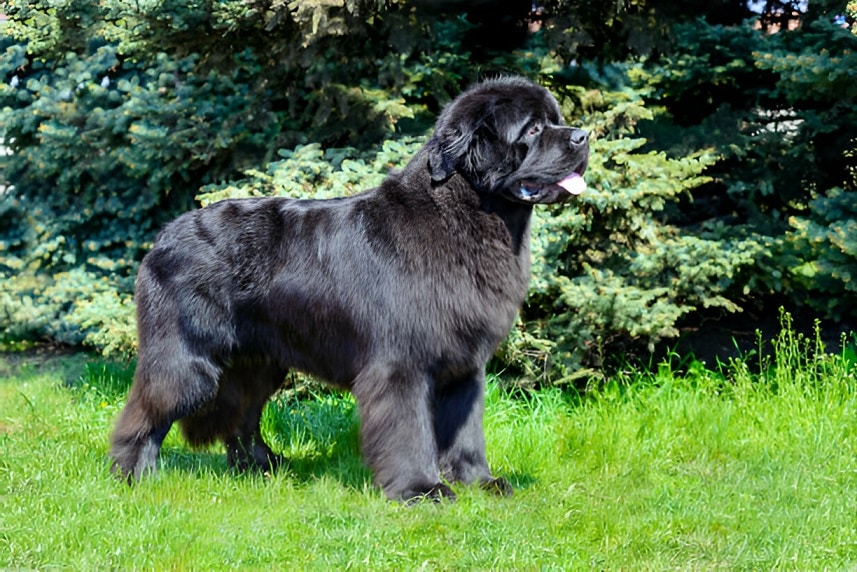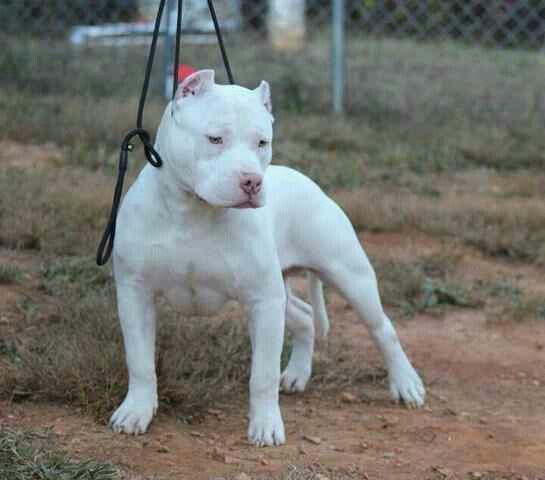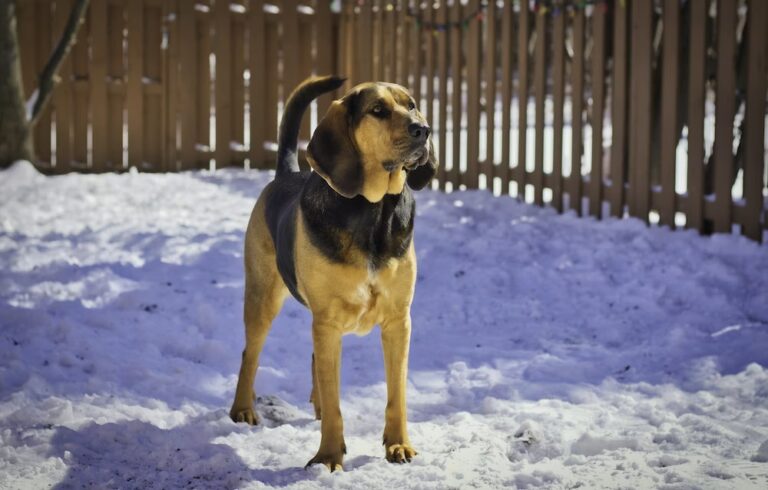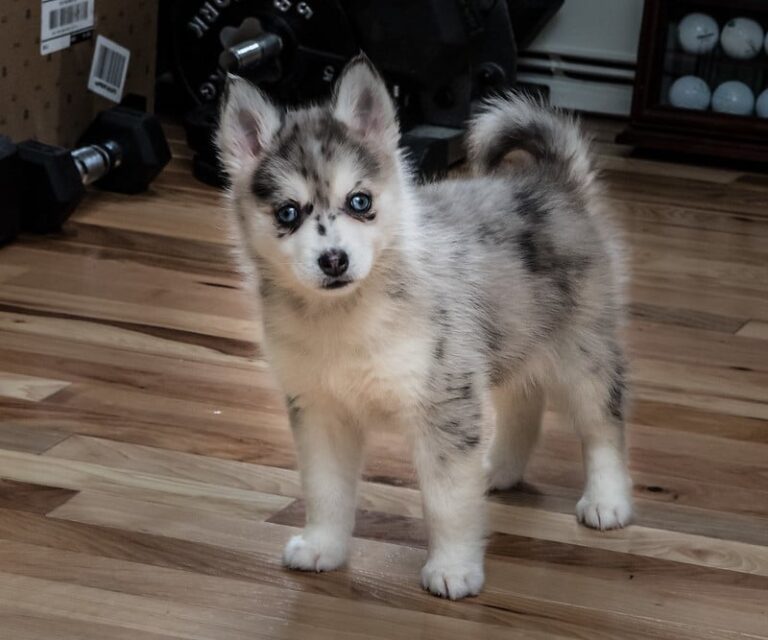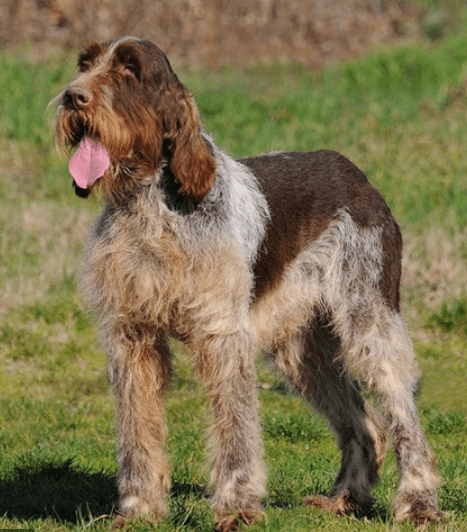Newfoundlands are big dogs known for being really gentle. They’re like the giants of the dog world. People love them because they’re so friendly and loyal. They have a cool history of being brave and helpful. Let’s learn more about Newfoundland, where they come from, what makes them special, and how they’ve helped people over the years.
History and Origin
Origins in Newfoundland
Newfoundlands, also known as gentle giants, have a rich history rooted in the island of Newfoundland, Canada. The breed’s origins can be traced back to the 18th century when European fishermen, primarily from England and Ireland, settled in Newfoundland for their lucrative fishing expeditions.
These fishermen brought along their loyal and hardworking canines, which eventually interbred with local water dogs indigenous to the region. The result was a breed that inherited the best qualities of both its European ancestors and the native dogs.
Breed Development
Over time, the Newfoundland breed developed distinct characteristics that made them ideal companions for various tasks. Their large, sturdy build, webbed feet, and thick water-resistant coat made them exceptional swimmers and invaluable aids for fishermen. These dogs were adept at retrieving fishing nets, hauling heavy loads, and even rescuing people from the treacherous waters.
As the breed gained recognition for its exceptional abilities, it attracted the attention of dog enthusiasts outside of Newfoundland. Breeders sought to refine the breed’s characteristics, leading to the establishment of breed standards. The first official Newfoundland breed club, the Newfoundland Club of America, was founded in 1930, further solidifying the breed’s status.
Through selective breeding and careful preservation of their traits, Newfoundlands began to exhibit not only their remarkable working abilities but also their gentle and affectionate nature. These qualities made them popular not only as working dogs but also as beloved family pets and therapy dogs.
Today, the Newfoundland breed continues to be cherished for its loyal and gentle temperament, making them beloved companions for families of all sizes. Their history and origin as hardworking dogs in Newfoundland have left an indelible mark on their character, making them truly gentle giants with a heart of gold.
Physical Characteristics
Size and Appearance
Newfoundlands are known for their impressive size and majestic appearance. Considered one of the largest dog breeds, they typically reach a height of 26 to 28 inches at the shoulder and can weigh anywhere between 100 to 150 pounds. Their robust and muscular build, combined with a broad chest and strong legs, gives them an authoritative presence.
Coat and Colors
One of the most striking features of Newfoundlands is their thick, water-resistant double coat. Their outer coat is coarse and straight, while the undercoat is dense and soft. This unique coat helps protect them from the cold and wet conditions, making them excellent swimmers and lifeguards.
Newfoundlands come in various colors, including black, brown, gray, and Landseer (white with black markings). The solid-colored Newfoundlands have a uniform coat color throughout their body, while Landseers have a predominantly white coat with distinct black patches or markings.
Distinctive Features
Apart from their size and coat, Newfoundlands possess several distinctive features that set them apart. One of their most notable features is their broad, square-shaped head with a deep muzzle. This gives them a noble and gentle expression, which perfectly aligns with their temperament.
Newfoundlands also have expressive, kind eyes, which are typically dark brown in color. Their eyes reflect their gentle and loving nature, making them incredibly endearing to anyone who meets them. Additionally, their ears are relatively small and triangular-shaped, hanging close to their head.
In terms of body structure, Newfoundlands have a strong neck and a well-muscled body. Their tail is broad at the base and gradually tapers towards the end. When they are relaxed, their tail hangs down, but when excited or alert, they may hold it high or wag it with enthusiasm.
Overall, the physical characteristics of Newfoundlands, including their size, majestic appearance, thick coat, and distinctive features, make them truly remarkable and beloved by many.
Temperament and Personality
Gentle and Sweet-Natured
Newfoundlands are known for their gentle and sweet-natured temperament. These gentle giants have a calm and patient demeanor, making them excellent companions for families and individuals alike. Their kind-hearted nature shines through in their interactions with both humans and other animals.
Protective and Loyal
Apart from their gentle nature, Newfoundlands are also highly protective and loyal. They have a strong sense of duty and will go above and beyond to protect their loved ones. With their imposing size and strength, they can be an intimidating presence to potential threats. However, their protective instincts are always balanced with their gentle nature, making them a perfect combination of strength and compassion.
Interaction with Children and Other Pets
Newfoundlands are incredibly friendly and patient with children, making them ideal family pets. They have a natural affinity for kids and will often become their loyal playmates and protectors. Their gentle and tolerant nature allows them to handle the energy and sometimes unpredictable behavior of children with ease.
When it comes to other pets, Newfoundlands typically get along well with them. They have a friendly and sociable personality that makes them adaptable to different social situations. Whether it’s another dog, a cat, or smaller pets like rabbits or guinea pigs, Newfoundlands are generally accepting and can form strong bonds with their furry companions.
In conclusion, Newfoundlands possess a temperament and personality that truly sets them apart. Their gentle and sweet-natured disposition, combined with their protective and loyal instincts, make them a beloved breed among dog enthusiasts. With their ability to interact positively with both children and other pets, Newfoundlands are truly gentle giants with hearts of gold.
Training and Exercise
Trainability
Newfoundlands are known for their trainability and intelligence. They are quick learners and eager to please their owners, making them relatively easy to train. However, it is important to start their training early on, as they can grow to be large and strong dogs.
When training a Newfoundland, positive reinforcement techniques work best. They respond well to praise, treats, and rewards. Harsh training methods or punishment should be avoided, as they can be sensitive dogs and may become timid or fearful.
Newfoundlands excel in various types of training, including obedience, agility, and even water rescue training. Their natural swimming abilities make them perfect candidates for water rescue work, and they are often used as therapy dogs due to their gentle nature.
Exercise Needs
Despite their large size, Newfoundlands have relatively moderate exercise needs. They are not hyperactive dogs, but they do require regular physical activity to maintain their overall health and prevent weight gain.
Daily walks are essential for Newfoundlands, as they help to keep their muscles toned and prevent stiffness. They also enjoy outdoor activities such as hiking, swimming, and playing fetch. Engaging them in mentally stimulating activities, such as puzzle toys or obedience training, can also help keep them mentally sharp and prevent boredom.
It is important to note that Newfoundlands are prone to joint and hip issues, so excessive exercise should be avoided, particularly during their puppyhood. It is best to consult with a veterinarian or a professional dog trainer to determine the appropriate exercise routine for your Newfoundland, taking into consideration their age, weight, and overall health.
Overall, providing regular exercise and training opportunities for your Newfoundland will not only keep them physically fit but also help them to be well-behaved and happy companions.
Health and Care
Common Health Issues
Newfoundlands are generally a healthy breed, but like any dog, they are prone to certain health issues. It is important for Newfoundland owners to be aware of these common health problems so they can take appropriate measures to prevent or address them. Some of the common health issues in Newfoundlands include:
- Hip Dysplasia: This is a genetic condition where the hip joint doesn’t develop properly, leading to arthritis and mobility issues. Regular exercise, a balanced diet, and appropriate weight management can help reduce the risk of hip dysplasia.
- Gastric Dilatation-Volvulus (GDV): Also known as bloat, this is a life-threatening condition where the stomach fills with gas and twists. It is more common in deep-chested breeds like Newfoundlands. Feeding multiple small meals, avoiding exercise after meals, and using slow-feed bowls can help prevent GDV.
- Heart Disease: Newfoundlands are prone to certain heart conditions, including dilated cardiomyopathy and subaortic stenosis. Regular check-ups with a veterinarian and appropriate cardiac screening are crucial to detect and manage these conditions.
- Cystinuria: This is an inherited condition where cystine crystals form in the kidneys and bladder, leading to urinary stones. Adequate hydration and a diet low in protein and certain amino acids can help prevent stone formation.
Grooming Requirements
Newfoundlands have a thick, water-resistant double coat that requires regular grooming to keep it healthy and tangle-free. Here are some grooming requirements for Newfoundland dogs:
- Brushing: Regular brushing is essential to prevent matting and remove loose hair. Use a slicker brush or a grooming rake to reach the dense undercoat and remove any tangles. Pay extra attention to areas like the neck, ears, and tail, where tangles are more likely to occur.
- Bathing: Newfoundlands have a natural oily coat that helps protect their skin. Avoid over-bathing, as it can strip the coat of its natural oils. Aim for a bath every 2-3 months or as needed. Use a dog-specific shampoo and conditioner to keep the coat clean and moisturized.
- Nail Trimming: Regular nail trimming is important to prevent overgrowth and discomfort. Use a dog nail trimmer or grinder to trim the nails carefully, avoiding the quick (the blood vessel inside the nail). If you are unsure, seek assistance from a professional groomer or veterinarian.
- Ear Care: Newfoundlands are prone to ear infections due to their floppy ears. Clean the ears regularly with a dog-specific ear cleaner and check for any signs of redness, swelling, or discharge. If you notice any issues, consult a veterinarian for proper treatment.
Nutrition and Feeding
Proper nutrition is vital for the overall health and well-being of Newfoundlands. Here are some considerations for feeding your Newfoundland:
- Balanced Diet: Feed your Newfoundland a high-quality, balanced diet that is appropriate for their age, activity level, and any specific health concerns. Choose a dog food that contains real meat as the primary ingredient and is free from artificial additives.
- Portion Control: Newfoundlands are prone to obesity, which can lead to various health problems. Monitor their food intake and follow the recommended portion sizes provided by the dog food manufacturer. Avoid overfeeding and limit treats to prevent excessive weight gain.
- Feeding Schedule: Establish a consistent feeding schedule for your Newfoundland. Divide their daily food intake into two or three meals to prevent bloating and aid digestion. Avoid feeding immediately before or after exercise to reduce the risk of gastric dilatation-volvulus (bloat).
- Fresh Water: Make sure your Newfoundland always has access to fresh, clean water. Provide water in a spill-proof bowl that is easily accessible for your dog throughout the day.
Remember, consulting with a veterinarian is essential for personalized advice regarding your Newfoundland’s specific health and nutritional needs.
Newfoundlands truly live up to their reputation as gentle giants with a heart of gold. These remarkable dogs possess not only an imposing physical stature but also a kind and caring nature that makes them excellent companions and family pets. Their loyalty, intelligence, and gentle temperament make them ideal for various roles, including therapy and rescue work. The Newfoundland’s innate love for water and natural swimming abilities further enhance their uniqueness and appeal. Whether it’s their unwavering devotion, their gentle and patient demeanor, or their ability to form strong bonds with their owners, Newfoundlands are truly a breed apart. If you are looking for a loving, loyal, and majestic companion, the Newfoundland is undoubtedly an excellent choice.

